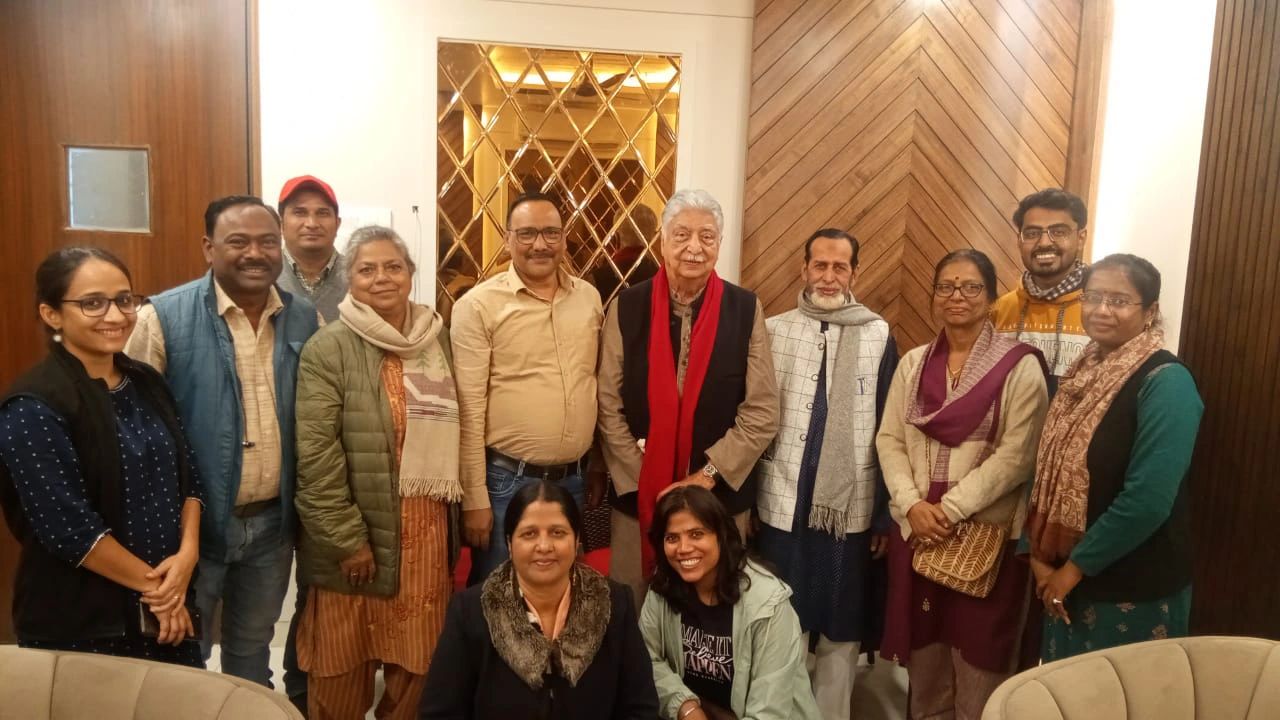
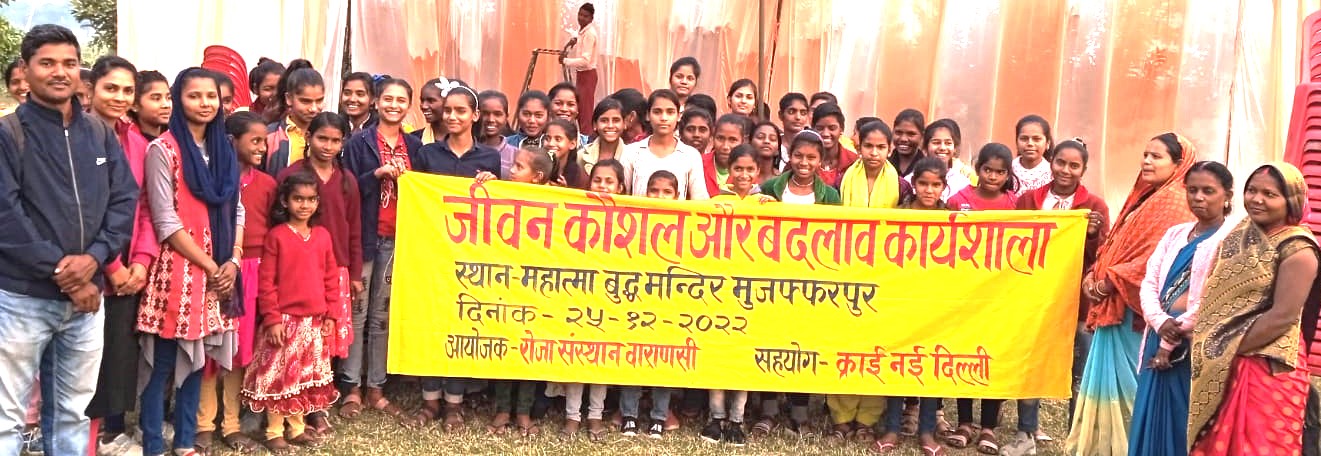
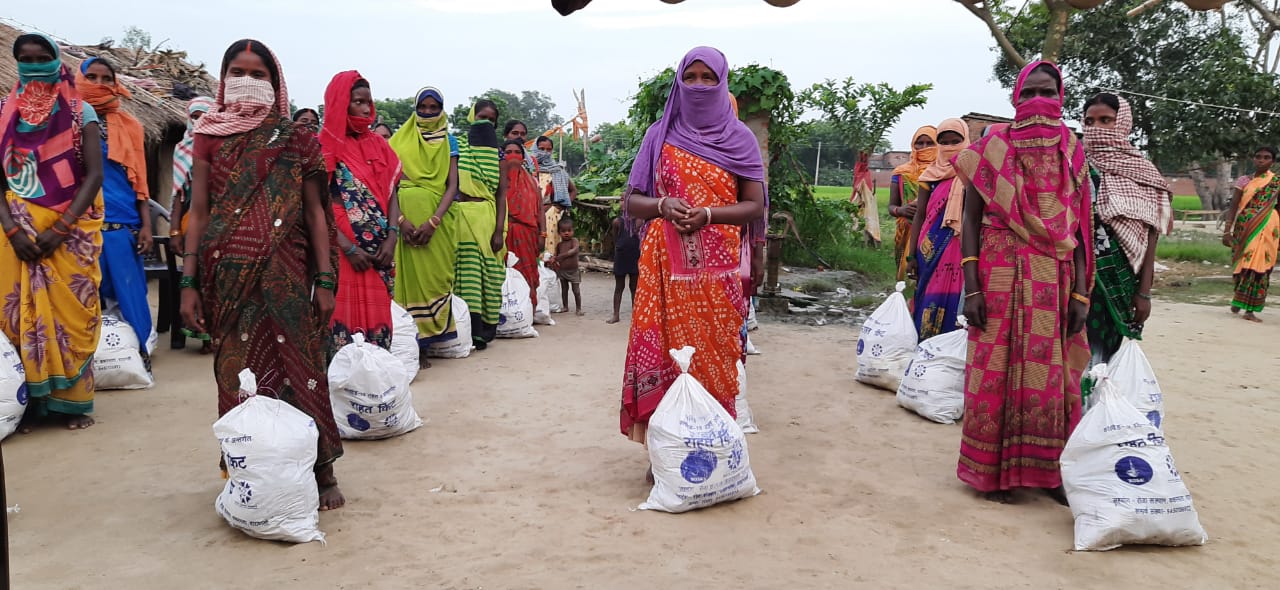
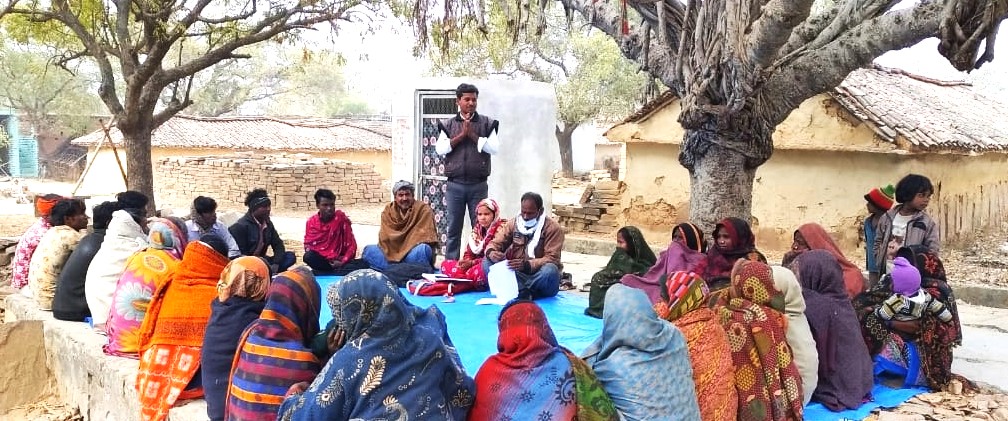
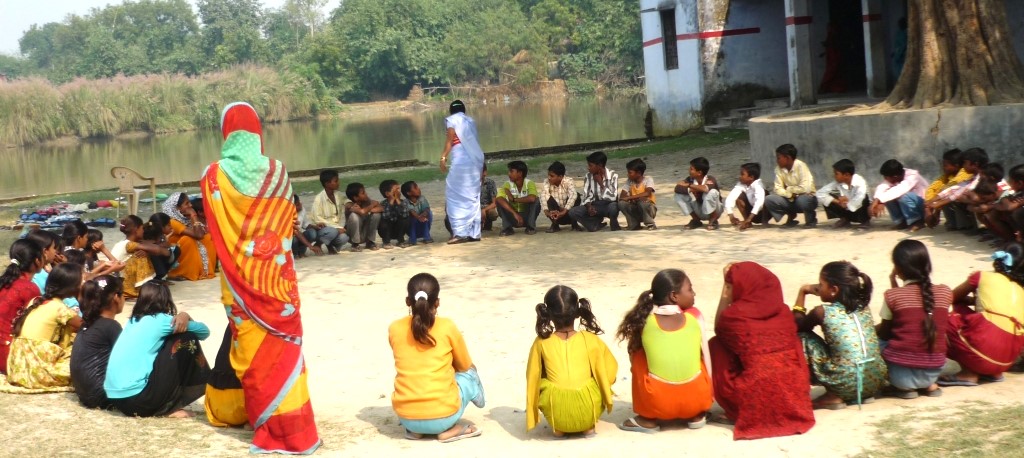
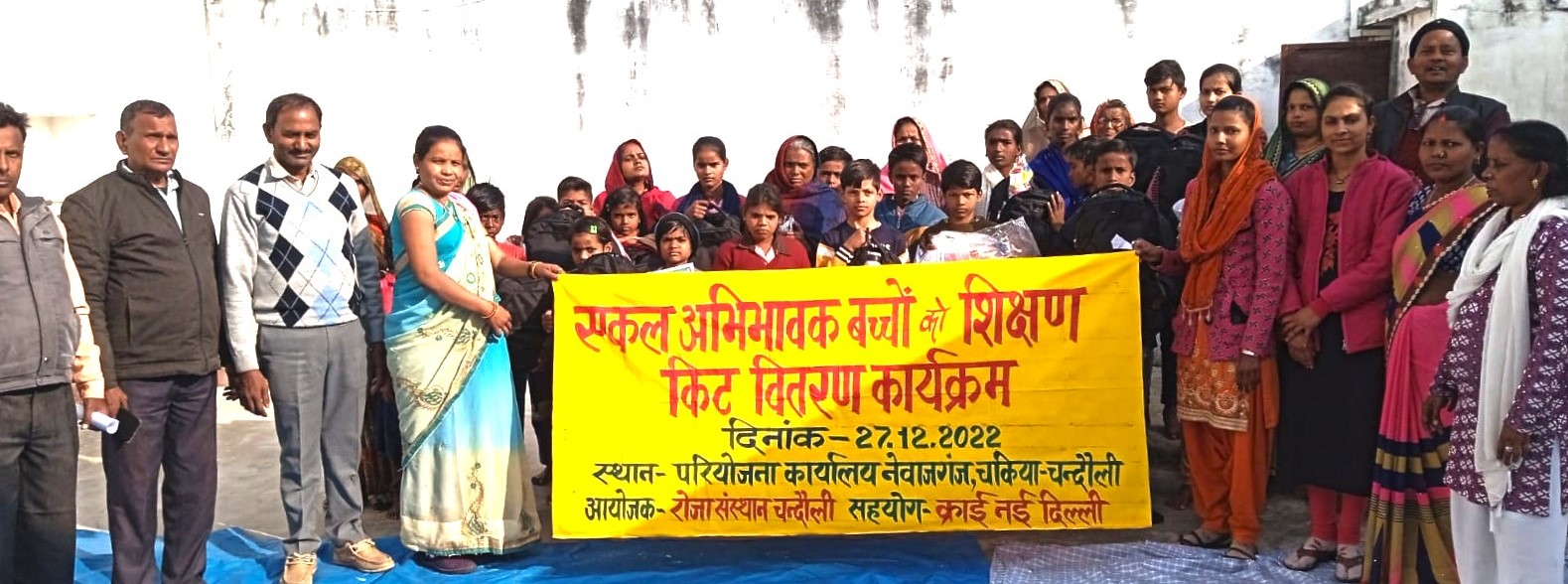
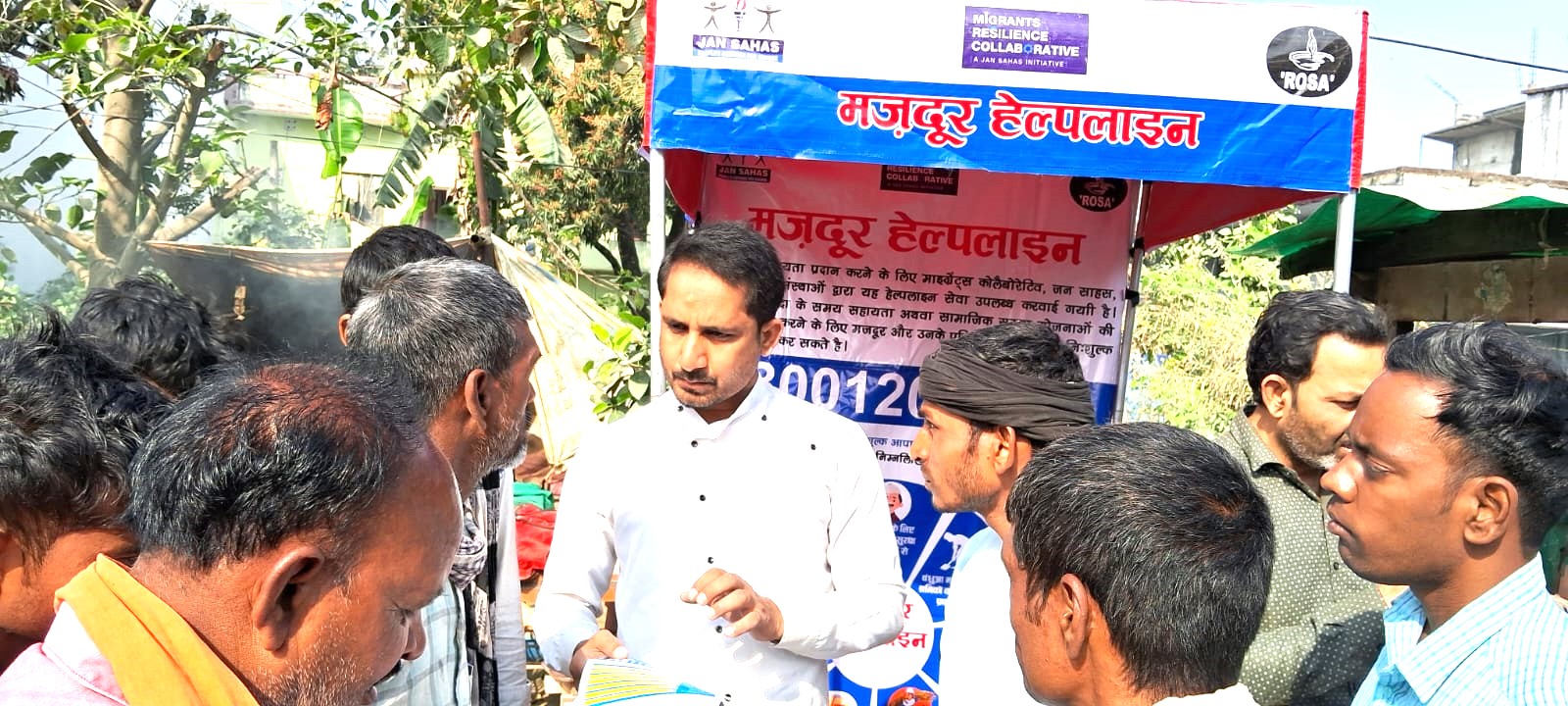
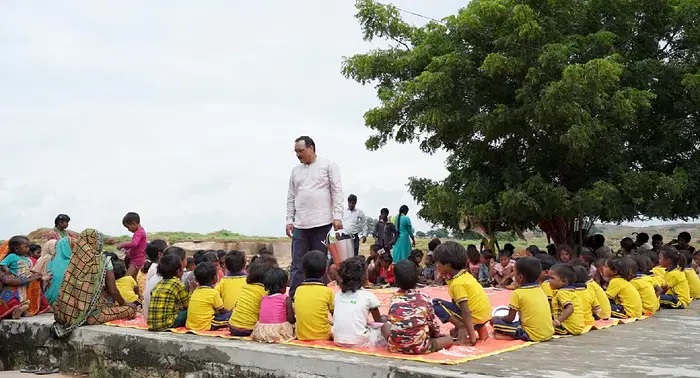
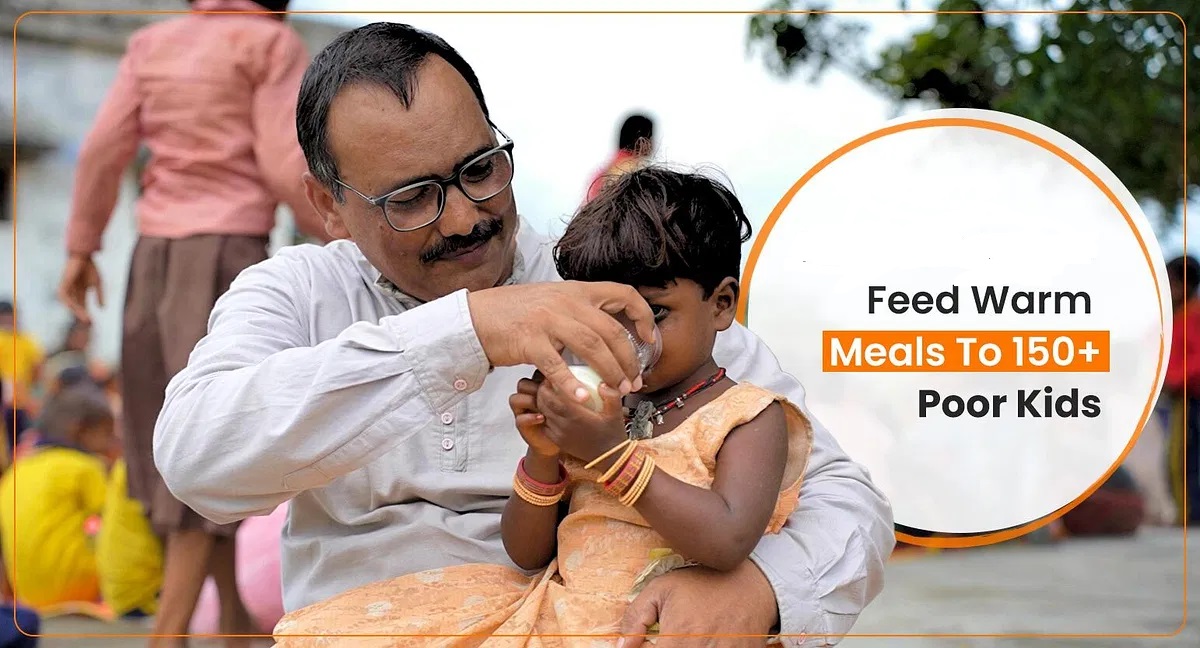

ROSA, Chandauli, UP
CASE STORY on
BASIC INFORMATION: -
The project is being run on the issue of health and nutrition in 26 revenue villages under 11-gram panchayats of development block of Chakia and Chandauli district of Uttar Pradesh. In which health services are provided with knowledge building, awareness, skill development to adolescent girls, pregnant women, lactating women and children up to 5 years of age. The project comes under forest area and revenue area. Some area is hilly and some plain. The people of the mixed community living in this area are Dalit and backword communities is the main target group of the project.
STATUS OF THE CHILDREN AND COMMUNITY IN THE PARTICULAR VILLAGE AREA: -
Minority communities, scheduled castes, backward castes and general caste people reside in this project area. Social and economic conditions differ depending on the community. The conditions of the Musahar community, especially under the Scheduled Castes, are more challenging. On the basis of social conditions, the condition of the children of that community is also similar, such as the challenges of access to government health services of the children of the Musahar community, high malnutrition, negative thinking of the service providers towards the particular community, the feeling of untouchability, drop out and in schools. Reduced stay in villages so that compulsion of the family towards child labour as well as the existence of child and girl marriage. On a rough basis, we find that the Musahar society is leading the most challenging life in this area.
DESCRIPTION OF THE PROBLEM (PARTICULAR CHILD / CHILDREN / FAMILY / COMMUNITY): -
The biggest challenge in this area is because the Musahar community resides in the forest area, the place where they are living is not theirs. Therefore, the opportunity for their development is closed. The benefits of government schemes are not available on that land. Due to limited employment opportunities, there is migration of families due to which they are cut off from the process of development. To reduce the challenges of migration, there is an effect of child labour, child marriage, drop out from education, distance from Anganwadi, malnutrition in children as well as anaemia in women. Under the pressure of all these challenges, a negative thinking has developed on the issue of development in the family, community, due to which they do not believe in any development process and keep distance. But the challenges of other communities of the society are also similar. The difference is that the family and community which have land, employment resources, education, they play a part in their own challenges as well as in the processes of development. Due to which they are on the path of progress.
CRY INRERVENTION-
CRY project in this area was started in April 2017 with 08-gram panchayats and 16 revenue villages. The main issue of this project is health and nutrition. Under which adolescent girls, eligible couples, pregnant women, lactating women and children are the target groups. The focus point of this project is to make access of government health and nutrition services to the beneficiaries and access services to the beneficiaries so that children can get their rights in time. In this sequence, in 2019, the work of providing health services to the target community through counselling and monitoring centre (CMC) was also started so that the demand could increase by providing a model of health and nutrition in the community.
Case story-
Anjali is a resident of Muzaffarpur village of development block Chakia of district Chandauli. She was identified as pregnant by project worker Pooja Maurya on 16 December 2021. At that time, she was 21 years old and had her first pregnancy. She was a suffering of anemia and was underweight as per standard. They did not like anything in food. Because of which only the less food was used. Even after explaining etc., she was hesitant. These were linked with ASHA and Anganwadi by the project worker. On 22 January 2022, the project's counselor (CMC) visited him and the process of visits continued at regular intervals. He was given full counseling from time to time. ASHA was advised to get regular check-up done and use supplementary nutrition from Anganwadi. Vaccination was done by timely monitoring. Examples of many uses of food were given and advice was given to adopt. Through the project, their family members were also explained, especially the importance of iron in the food, iron tablets were fed and kitchen garden was done. Some vegetable seeds were provided by the organization and some were suggested to be taken from the market. Timely vaccination, antenatal check-up and supplementary nutrition were ensured by the worker by visiting the home from time to time. The worker found that the iron tablet was not being consumed by Anjali. On which it was advised to go to sleep after eating at night.
Anjali was taken to the hospital by the family on 16 June 2022 in labor pains where the baby was born through the operation. The baby weighed 2.6 kg at the time of delivery. Anjali and the family accepted the advice of giving the child kangaroo therapy and feeding colostrum.
OUTCOME / IMPACT: -
In this way, with intensive effort, the pregnant at risk got a baby of normal weight. On this day both mother and child are healthy and enjoying family happiness.
SUSTAINABILITY OF THE INTERVENTION/ CHANGE/ IMPACT: -
By identifying bright children, adolescent girls and women in each village of the work area by the project, providing them with information, capacity and ability on the issue of health and nutrition as champions and community health mobilizer, through hand held support to the target community in that village. Work practice is done with them so that they can establish themselves as volunteers for sustainable initiatives on this issue in their village. So far, 35 community health mobilizers, 30 champion children and 35 champion adolescent girls are actively taking initiatives in the community by the organization.
KEY LEARNING: -
We have found during our work that if the consciousness of the needy is motivated by his previous social/personal contribution, then the needy gets involved in the trust development process. His participation increases and he starts motivating other people too.
VOICES FROM THE FIELD: -
The initiative of the project has increased individual and community demand from local service providers on health and nutrition issues. The needy communities have reduced their dependence on others for their development. Children, adolescent girls have seen more activity and initiative in this process.